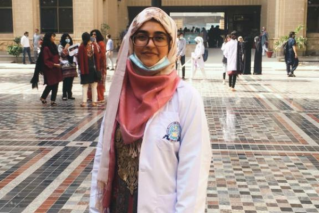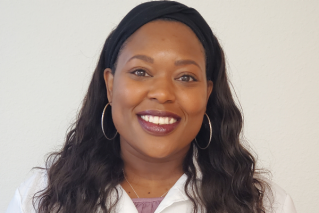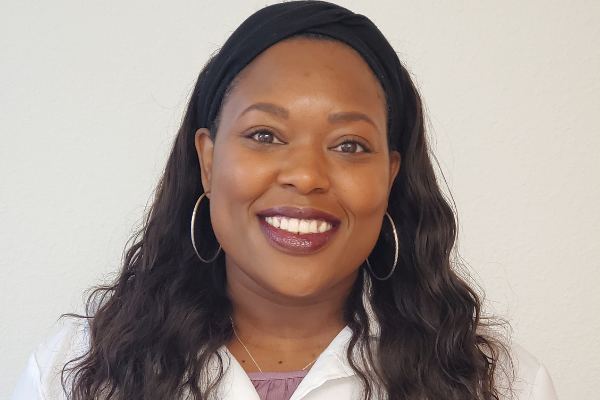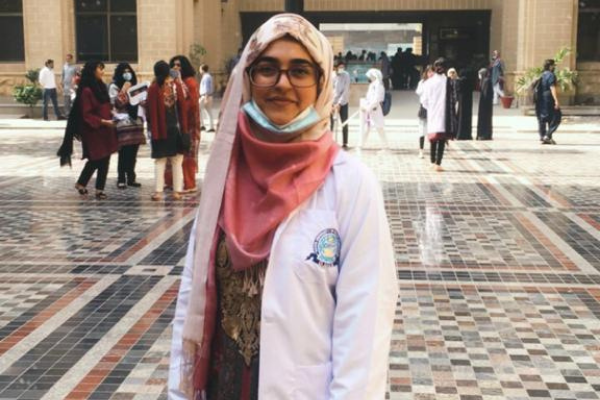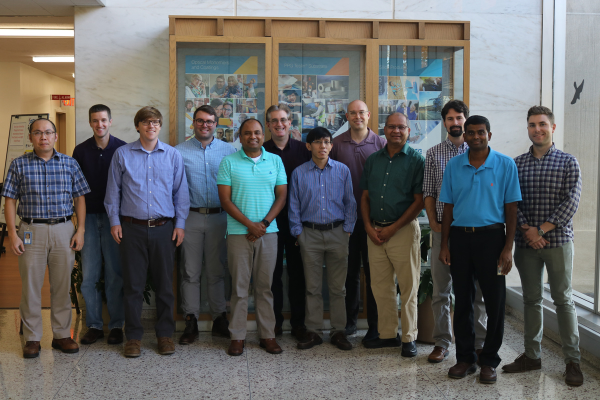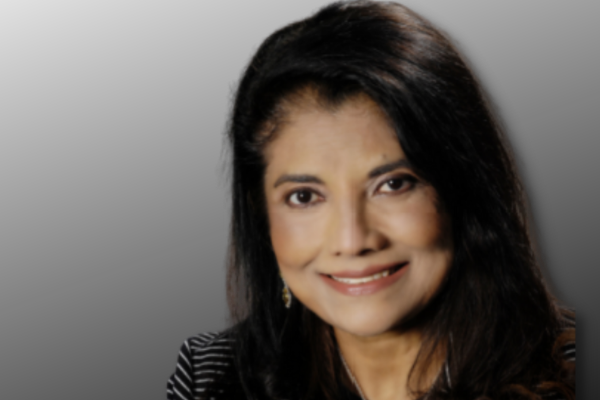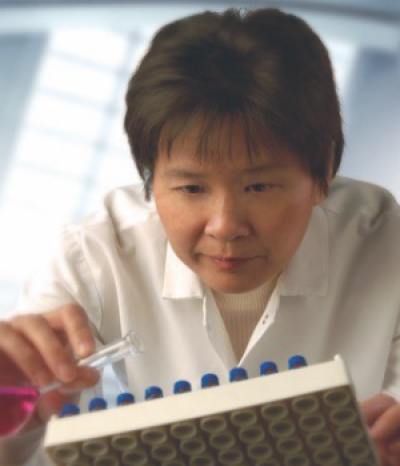
You wouldn’t want to play table tennis with Hong Zhang. That is, unless you are very, very good. She’s been playing since she was a young child growing up in Dujiangyan (Sichuan province, China) and medaled in the National Senior Games Women’s Doubles Table Tennis tournament in both 2013 and 2017.
She plays a few times a week and belongs to three local table tennis clubs. But she’s not idle the rest of her time. Far from it. As Chemistry Lead at the Advanced Testing Laboratory (ATL) in Cincinnati, Ohio, she develops analytical methodologies for LC/GC/AA/ICP/Titration Analytical Chemistry for Good Laboratory Practice GLP, as well as process optimization and project management for the company.
While working long, hard hours at her “day job,” she also has represented the ACS Cincinnati Section for the past 15 years. In her roles with ACS, she has led Earth Day and National Chemistry Week (NCW) events at multiple venues, such as the Museum Center in Cincinnati, and was recently named one of ACS’s 2021 Outreach Volunteers of the Year.
Working Woman
Zhang was born in China. Her father was a hydroelectric engineer and professor. Her mother taught middle school and later worked as an administrator in the local water works department.
She was still in primary school at the start of China’s Cultural Revolution (a period from roughly 1966-1976). “During that time, everything changed,” Zhang recalls. “My mother was sent to the countryside to work as a laborer. My father was forced to leave home and was isolated due to his university participation in the Three Principles of People Youth League, organized by the Nationalist Party. I stayed home with my younger brother to manage our daily lives.”
Even so, both parents continued to emphasize education, asking that Zhang and her brother practice Chinese calligraphy daily, filling at least three pages with letters, and in later years write poems based on photos published in the newspapers.
In China, there is not a lot of discrimination regarding women in the workforce. “Of course, every family is different but in my case my parents insisted that both my brother and I have a solid education and use it to get ahead in our lives.”
During high school, Zhang attended a boarding school in the countryside, about 10 miles from her home. There was no electricity or tap water. She would walk home from the school each weekend to visit and devote herself to her studies during the week. Upon completion, she was sent to the countryside to work as an “educated youth” farmer. It was hard work, and she was unsure about her future.
Luckily for her, China was undergoing change and started to open its doors to the outside world. Zhang took her college entrance exams and was accepted into Sichuan University, a prestigious university in China. She graduated with a bachelor’s in Engineering, Chemical Fibers in 1982 and went on to complete her Master’s in Engineering, Polymer Material Science and Technology in 1985. She played volleyball for Sichuan University throughout her college years and maintained a high GPA.
Moving to the U.S.
After graduation from Sichuan University, Zhang taught classes at Beijing Institute of Fashion Technology to senior college students about chemical fiber structures and properties, as well as chemical fiber manufacturing. She next applied to and was accepted to the University of Cincinnati. Her husband and young son, then age 1, moved to America, too.
She graduated from the University of Cincinnati in 1997 with a PhD in Analytical Chemistry. She worked as a scientist for several employers before accepting a position as a senior scientist with ATL in 2002.
At ATL she works as an Analytical Chemist and a Lead in the chemistry laboratory. “That means I answer questions from the analysts doing the tests when they can’t perform the tests or run into challenges.” She also prepares proposals for the Client Service teams, estimating the time and cost to complete a contract -- or asking questions if her team does not understand the methods being requested or other parameters.
She’s enjoyed her work with ACS, noting that her fellow volunteers -- in particular Ed Escudero, a chemistry teacher at The Summit Country Day School; Susan Hershberger, a chemistry professor at Miami University; and Donna Wiedemann, a senior chemist at P&G -- have a lot of enthusiasm and excitement about what they’re doing. Zhang attends monthly meetings and volunteer activities with the support of ATL. “I’m grateful that ATL pays my ACS membership, meeting fee and travel expenses,” she says.
New Possibilities
This hard worker will retire in the next five years or so, and she’ll be setting new goals. One area of focus will be in helping to educate the next generation of scientists. “That’s really my experience and my strength,” she says. “Of course I’ll still participate in NCW, and the occasional science fair.”
But lying in a hammock seems not to be on the schedule. “There are people, and even my kids, now ages 30 and 24, who don’t understand why I work so hard, but I have always put my work first. That’s because of the way I was raised -- the work in the countryside, the Cultural Revolution and, most importantly, my family’s insistence on education.”
“Many people growing up in China, and especially women, did not make it this far,” she adds. “I attribute my success to my family.”
Copyright 2022 American Chemical Society (All Rights Reserved)

